
Ulli Diemer — Radical Digressions
Notebook #1
- The 1972 Canada-Soviet hockey summit
- Grassroots Cells, Devil’s Architects
- 20 Years of I.F. Stone
- Workers’ revolt crushed by a workers’ state
- How they shot those campus bums
- Chomsky’s determination to change society
- Trotskyism & the Vanguard Party
- Glaberman & the Working Class
- Red Menace #1
- Seven News: first issue as editor
- Spring sprung
- He who pays the piper...
- The Red Menace #2
- Bain Co-op & Wages for Housework
- More on Wages for Housework
- Libertarian socialism
- Death on Yonge Street
- Make the Don a Museum of Horrors
- Dow complains
- Opposing Censorship
- The Red Menace #3
- Anarchism vs. Marxism
- Bakunin vs. Marx
- Words, words, words...
- Obscenity exposed
- How Things Don’t Work
- More than one way to strike
- A few decide where we live
- Democracy loses out
- The Red Menace #4
- Radical newspapers
- Some of my best comrades
- Legal decisions threaten press freedom
- Not guilty means not guilty
- Canada Metals chronology
- The Red Menace #5
- Something has to give
- Notebook 2
Articles Lists
- Selected Articles
- Articles in English
- Articles in French
- Articles in Spanish
- Articles in German
- Articles in Other Languages
- Articles A-Z
- RSS feed
- Subject Index
Selected Topics
- Alternative Media
- Anarchism
- Bullshit
- Capital Punishment
- Censorship
- Chess
- Civil Liberties
- Collective Memory
- Community Organizing
- Consensus Decision-making
- Democratization
- Double Standards
- Drinking Water
- Free Speech
- Guilt
- Health Care
- History
- Identity Politics
- Interviews & Conversations
- Israel/Palestine
- Libertarian Socialism
- Marxism
- Men’s Issues
- Moments
- Monogamy
- Neo-Liberalism
- New Democratic Party (NDP)
- Political Humour/Satire
- Public Safety
- Safe Spaces
- Self-Determination
- Socialism
- Spam
- Revolution
- Trotskyism
Snippets
The hidden meaning, the real essence, of this slogan, is the belief that it is neither possible or desirable for two or more ethnic or language groups to live together in one country. I cannot imagine a more pessimistic and less socialist point of view.
Thinking About Self-Determination
We undermine efforts to turn violence into a social taboo when we indiscriminately label every objectionable behaviour, including thoughts and remarks, as "violence."
Combatting Violence'
Blogs & Notes
- Latest Post
- Notebook 11
- Notebook 10
- Notebook 9
- Notebook 8
- Notebook 7
- Notebook 6
- Notebook 5
- Notebook 4
- Notebook 3
- Notebook 2
- Notebook 1
- Moments
- Scrapbook
Compilations & Resources
- Connexions
- Other Voices newsletter
- Seeds of Fire
- Alternative Media List
- Manifestos & Visions
- Marxism page
- Socialism page
- Organizing Resources
- People’s History, Memory, Archives
- Connexions Quotations page
- Sources
- What I’ve been reading
- What I’ve been watching
Words of Wisdom
- Revolution is never practical until the roar of revolution strikes. Then it alone is practical, and all the efforts of the conservatives and compromisers become the most futile and visionary of human language.
- – James Connolly
Snippets
Luxemburg was the leading exponent of a Marxism in the spirit of Marx. One indication of this, paradoxical at first glance, is that she was one of the very few leading Marxists who did not treat Marx’s writings as holy writ.
On Rosa Luxemburg
The idea that the right to democracy logically means shared and direct participation and control by all those affected by decisions is dismissed as impossible and probably "subversive." Thus the right to vote becomes the denial of the right to participate more directly in decision-making.
Rights and Liberties
Radical Digressions
Ulli Diemer’s Notebook #1
The 1972 Canada-Soviet hockey summit
The Varsity - October 6, 1972 #
This article was written a few days after the end of the 1972 hockey series between a Soviet team and a Canadian team comprised of players from the National Hockey League. The closely fought series saw the Canadians win four games, the Soviets three, with one game tied. I watched the second game of the series, played in Toronto, which Canada won 4-1.
“Freedom,” crowed an ecstatic Nancy Eagleson, “always wins out in the end.”
Her outburst came after Paul Henderson firmly established himself as a Canadian folk hero by slipping a puck under Vladislav Tretiak in Moscow in the final minute of play last Thursday. The goal gave Team Canada a dramatic 6-5 win in the eighth and deciding game in the series against the Soviet National Team. The victory, close though it was, at least partially restored Canada’s self-image, shaken by years of humiliation in international ‘amateur’ competition, and by defeats at the hands of the Soviets earlier in the series.
But what was involved was much, much more than a contest between two groups of superb athletes, or tremendously exciting entertainment for millions of spectators around the world.
It was, as Nancy Eagleson, and her husband Alan, executive director of the NHL Players’ Association, and spokesman for Team Canada, never lost an opportunity to point out, a highly charged, if largely symbolic, political clash between two nations on opposite sides of the Cold War, between different value systems, different attitudes to sport, and different life styles.
Read the rest of the article here.
Keywords: Hockey – Sports – Sports and Politics
Grassroots Cells, Devil’s Architects, Defend Communities
The Varsity - February 1973 #
Northcote Parkinson, in Parkinson’s Law, gave us a biting guide to the internal workings of bureaucracies. A more modest and less inspired, but handy, companion volume, a guide to fighting bureaucracies, is The Householder’s Guide to Community Defence Against Bureaucratic Aggression.
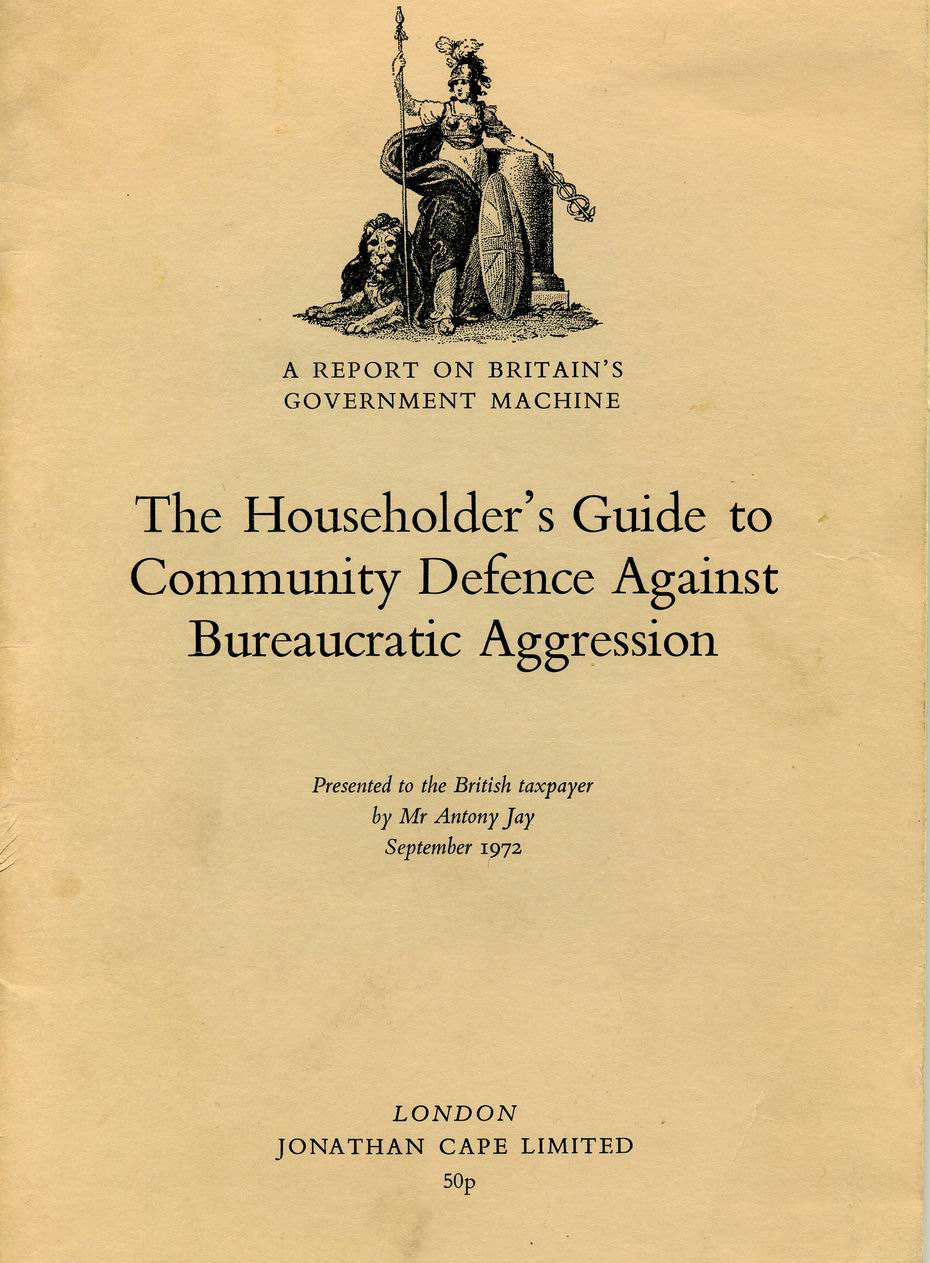
This little (64-page) pamphlet outlines the organizational principles and campaign tactics that communities should use in fighting projects or developments being foisted on them by unresponsive government bodies, whether by elected authorities or by civil servants.
With meticulous attention to detail, and frequent resort to dry British humour, the author, Antony Jay, sketches the way in which a local organization can best draw on its community’s resources and support to mobilize funds, publicity and experts on its side, and utilize tactical initiatives in fighting the bureaucratic enemy and exploiting his weakness and divisions.
He points out that “the crazy thing about protesting is that the time when you are most likely to succeed is the time when you are least likely to act. It is at the very beginning of the project that you have the best chance.... Do not wait until something firm is announced: firmness is the danger.”
Read the rest of the review here.
Keywords: Bureaucracy – Community Action Groups – Community Organizing – Grassroots Campaigns – Planning & Zoning Matters.
Twenty Years of I.F. Stone
The Varsity - October 1973 #

In the land once nurtured on the myth of George Washington and the cherry tree, the truth is threatening to become “inoperative”. And it’s not only the Richard Nixons, the J. Edgar Hoovers, the military monomaniacs of the Pentagon and the ubiquitous bureaucracies that are responsible. Even the universities and the press have been doing their part to lay it low, in an assault using not merely little hatchets, but verbal chain saws, flame throwers, and bulldozers.
In such a climate, a reporter has the option of being a cynic, a drunk, or a radical.
I.F. Stone made his choice in 1921, when, as an idealistic fourteen-year-old, he founded his first newspaper. He’s been at it ever since; this idealistic 66-year-old has done as much as any other individual in his lifetime to keep the truth “operative” in America.
Read the rest of the review here.
Keywords: Alternative Media – Investigative Journalism – Journalism – U.S. Politics.
Hungary 1956: A workers’ revolt crushed by the “workers’ state”
The Varsity - October 26, 1973 #
October 26, 1973 - This week marks one of the most significant – but least observed – anniversaries of the twentieth century: that of the Hungarian Revolution of 1956, when the Hungarian workers rose against the “workers’ state”.
The fact that the events of 1956 have been suppressed or misrepresented by the world’s major propaganda machines is far from surprising.
The “free world”, despite its desire to score points against the Russians, could scarcely be expected to applaud a revolution that sought to overthrow a ‘Communist’ government, not because it was instituting communism, but because it wasn’t.
The Russians and their friends, of course, have no wish whatever to have it publicized that the ‘counter-revolutionary fascist gangs’ they crushed with thousands of tanks comprised virtually the entire population of Hungary – office workers, factory workers, students, housewives, intellectuals, artists, farmers, and even the army – united in workers’ and community councils, demanding and instituting a thorough-going socialism – hardly the usual form taken by ‘fascist counter-revolutions.’
The contribution of the Chinese Maocultists, meanwhile, for whom all that was best in Russia died with kindly Joe Stalin, has been to criticize the Russian ‘revisionists’ for not being severe enough in putting the rising down.
All the more important, then, to draw lessons from those fateful days.
For the successes of this revolution, brief as it was, did as much as a century of socialist theorizing to show what a united and determined people could do to transform their society.
Read the rest of the story here.
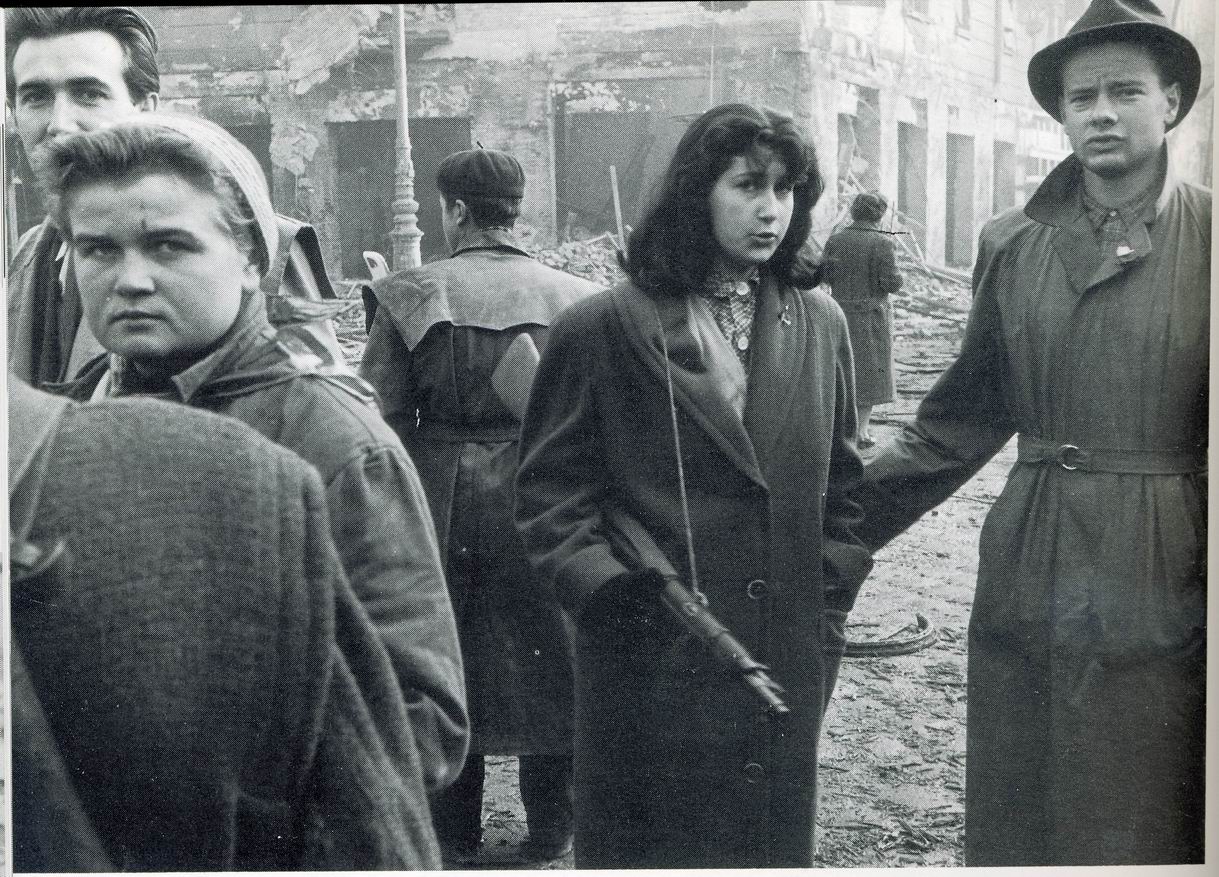
Keywords: Communist Regimes/Europe – Eastern Europe – Hungarian Revolution – Hungary – Revolution.
How they shot those campus bums
The Varsity - December 7, 1973 #
On March 5, 1770, British troops fired – in self-defense, they claimed – into a rioting mob in the city of Boston. Immediately afterwards, the soldiers responsible were arrested and indicted by the British government; several were convicted of manslaughter. Nevertheless, the incident so outraged public opinion in America that the Boston Massacre, as it became known, proved an important contributing factor in the anger that led to the outbreak of the American Revolution.
Some two hundred years later, on May 4, 1970, troops of the Ohio National Guard fired into a group of demonstrating students – allegedly in self-defense – killing four, and wounding nine others, several seriously.
Although student fury at the event developed into demonstrations and strikes across the country, the response of the general American public differed markedly from that on the campuses, or from that of 1770. More than 60 per cent of the population condoned the shootings. More telling – and ominous – yet was the fact, revealed in interviews with some 400 Kent State students after the shootings, that some said they “had been told by their parents that it might have been a good thing if they had been shot.”
This background, this willingness to condone the use of force against students whatever the occasion, may help to explain the lack of any action whatever against the killers by the government or the courts.
The killings were, it is almost certain, a case of premeditated murder, a conspiracy on the part of a number of guardsmen to “get those bastards”, the campus long hairs. Other military and civilian officials, while not complicit, participated in a cover-up.
Read the rest of the review here.
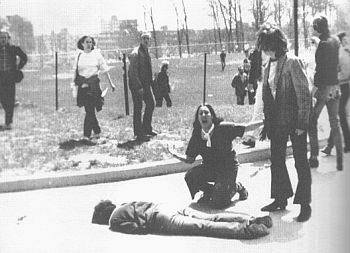
Keywords: Political Violence – State-sponsored violence – Students – U.S. History – Violence against civilians.
Chomsky’s determination to change society before it slides into irreversible barbarism
The Varsity - March 22, 1974 #

If the American war against Vietnam had no other positive outcome, it has at least produced a minority of Americans who have the courage to stand against the policies of their government.
Outstanding among these is Noam Chomsky, leading scholar in the field of linguistics, who has contributed some brilliant works of politics and social criticism. His analysis is radical in the best sense of the word: It goes to the root of the barbarism that is engulfing the ‘civilized’ world. I think it is fair to say that the US has produced no better social critic, although a few, including Paul Goodman, might claim equal stature.
Read the rest of the review here.
Keywords: Noam Chomsky – Intellectuals – Resistance – Vietnam War – War crimes.
Trotskyism and the Vanguard Party
March 22, 1974 - #
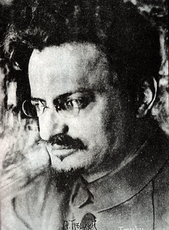
Trotskyists in particular have tended to fetishize what they believe is Leninism, and have displayed a remarkable inability to understand objections to their version of the ‘vanguard party’....
Lenin’s theory also differs markedly from Marx’s concept of the self-emancipation of the working classes. For Lenin, the proletariat, unable to develop its own consciousness and unable to form its own revolutionary organization, must be led and disciplined by revolutionary bourgeois intellectuals. It therefore becomes the object and not the subject of history.
Essentially, this represents an attempt to provide organizational solutions to political problems....
Critics of Leninism have pointed out that what is at issue is not the incontestable fact that intellectuals formulate ideas. The question is: do we adopt organizational forms that institutionalize the divisions between people with different ‘levels of consciousness’, or do we set out to develop forms that seek to overcome these differences?
The Trotskyist approach is consistently elitist: for example, they hold their policy debates in secret, so that the unschooled masses will be exposed only to the correct line as determined by the vanguard. Terrible confusion would apparently result were the ‘unconscious’ workers to be exposed to hearing differing positions on a particular issue. Of course, since any revolutionary organization worth its salt is infiltrated by the police, the practice of not revealing opposing positions in public means that the police know more about the political debates within the vanguard party than does the working class.
This theory of consciousness is diametrically opposed to Luxemburg’s insistence that political consciousness can be raised only through the widest possible public discussion and involvement in public affairs.
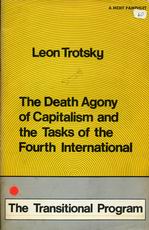
Perhaps the crucial contradiction inherent in the vanguard-party model, with its insistence on centralized authority at the top to guard against the less ‘conscious’ rank and file taking incorrect positions, is that it ignores the ancient problem: who guards the guardians? This is no empty theoretical issue: the history of the entire Leninist movement, Trotskyist or otherwise, could easily be written as a history of one party leadership after another leading organizations into dead-ends, defeats, and debacles against the wishes of much of the rank and file.
With its arbitrary and formal divisions between leaders and led, the ‘democratic centralist’ vanguard party often becomes a divisive influence in the working class movement, and frequently ends up acting as a brake on spontaneous upsurges that originate outside the party. The organizational model is closed and rigid, so the party tends to become increasingly inbred and separate from the people it is supposedly trying to reach and represent.
Perhaps the major irony of the Trotskyists’ insistence on a united disciplined party under centralized leadership is that what this model actually produces is factionalism, disunity, and split after split. Every Leninist with leadership pretensions secretly imagines himself to be the new Lenin, the infallible leader prepared to split any organization that deviates from what he sees as the correct line. The hothouse world of the Trotskyist vanguard party concentrates tensions and egos that sooner or later explode.
Read the rest of the story here.
Keywords: Leadership – Leninism – Trotksyism – Vanguard Parties.
Preface to Martin Glaberman’s Four Essays on the Working Class
February 1976 - #
The question of the working class, as Martin Glaberman notes, is an old and honoured one on the left. But actual class analysis, as opposed to its mere invocation, one might add, is a practice that has tended to be more honoured in the breach than in the observance. It is therefore a welcome sign that the question is being looked at with renewed critical interest by at least parts of a socialist movement which needs to seriously re-examine traditional assumptions and ways of looking at society. Welcome, also, because it is unfortunately true that many of the conceptions of the left have hardened into dogmas that now function more as barriers to creative thought than as flexible guides for developing radical analysis and strategy.
For some, the process of questioning traditional formulations has led to pessimism or to reformism, or to the dismissal of the working class as allegedly “bought off” by affluence, while various marginal social groups are promoted as the new standard-bearers of revolution, their purity presumably guaranteed by their poverty or by their marginality. Indeed, one form of this argument asserts that nothing can be done in the advanced capitalist countries except to wait – and cheer – for the liberation armies of the third world as they ready themselves to engulf the heart of the imperialist system.
But those who are unwilling to accept any of these different ways of abandoning the Marxist revolutionary project find themselves being inevitably led back to the centrality of the question of the working class: the central class of capitalist society. To this discussion, Martin Glaberman makes a valuable contribution.
Read the rest of the preface here.
Keywords: Class Analysis – Class Struggle – Workers – Working Class – Workplace conflict.
The Red Menace #1 published
February 1976 - #
The first issue of The Red Menace, a newsletter published by the Toronto Liberation School, appears in February 1976. I am a member of the founding editorial collective.
The first issue, 52 pages in length, has several articles about a recent Popular Education Conference hold in Toronto. Members of the Toronto Liberation School played an important part in organizing the conference, and this first issue of The Red Menace reflects that, with four articles giving different perspectives on the conference. The differing views reflect our vision of what we want The Red Menace to be, namely a publication which encourages critical analysis and debate within a broadly libertarian socialist perspective.
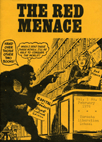
In addition to the articles about the Popular Education Conference, the issue also contains a lengthy article by two members of the Toronto Liberation School about their experiences organizing in a small town in Ontario, an article about the revolution in Portgual, and an analysis of the wage and price controls introduced by Pierre Trudeau’s Liberal government.
The introduction, which I drafted based on input from from other members of the collective, outlines our reasons for launching the publication. It begins “The Red Menace is published by Toronto Liberation School. Toronto Liberation School is a group of libertarian socialists, independent of any political organization, who see a need for a broad range of educational and cultural activities that contribute to transforming this society. We see the constituency for these activities as all those people who have become concerned about their lives, their communities, and the problems of this society and its institutions; people who have become activists at the workplace or in the community, for their needs and rights, or around national and international issues; people struggling for their liberation.”
We go on to say “we do not intend that this newsletter reflect a single political line, not only because we do not believe that a coherent and comprehensive ‘correct line’ exists but more importantly because we believe that a necessary condition, and pre-condition, of libertarian politics is the widest and most open discussion. We cannot consider any questions closed. And certainly there will be many times when we print contributions that we do not ourselves agree with....
The project we are committed to is that of developing a libertarian marxism which takes as its project the critique of the totality of human life in capitalist society....
Based on this critique, we are committed to developing a revolutionary politics that is liberatory in the fullest sense of the word. Capitalism is a totalistic system of oppression that invades all areas of life: socialism must be the overcoming of capitalist reality in its entirety, or it is nothing.... a socialism that is partial can only become a parody of the liberatory ideals it espouses. The disastrous results of a ‘socialist’ movement that equated socialism with nationalization of industry speak clearly enough in this regard.
Our belief in a total revolution impels us to underline the assertion that Marx made the first point in the statement of principles of the First International: ‘The emancipation of the working classes must be achieved by the working classes themselves.’ ... Social liberation, human liberation is a process that must go to the root. It cannot be decreed. Nor can it be achieved without the participation of the vast majority of the population. A collective project, and therefore individual, as well, socialism must be self-liberation in every sense of the word.”
See The Red Menace #1 here.
Keywords: Community Organizing – Libertarian Socialism – Organizing for Social Change – Popular Education – Portugal – Toronto Liberation School
Seven News: My first issue as editor
November 20, 1976 - #
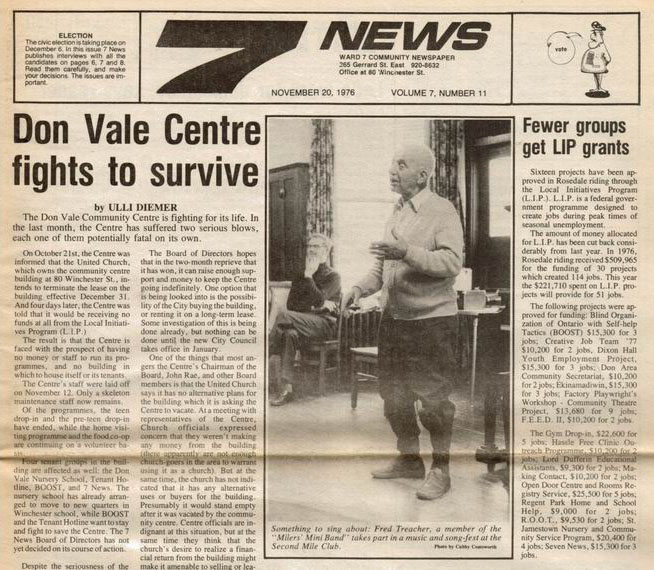
In November 1976, I became the editor of Seven News , a non-profit community owned newspaper published in Toronto’s “Ward 7“. Ward 7 was the area east of downtown, extending from Sherbourne Street in the west to Logan Avenue in the east, and from Lake Ontario up to Bloor Street and Danforth Avenue. Before I became editor, I had been working at Seven News for a year prior to this, as volunteer co-ordinator and business manager.
Seven News has been digitezed: all back issues, along with background articles and other materials, are available online.
It was a challenging time to take over as editor. The paper was in financial difficulty, with advertising not enough to carry the paper on its own, and fewer government grants available to make up the difference. At the same time, we were facing the loss of our office at the Don Vale Community Centre because the owner of the building, the United Church of Canada, had announced that it was going to sell it off. The first issue I edited, published on November 20, 1976, featured a front-page story on efforts to keep the community centre from closing. Another story reported that Seven News was going to be receiving a small Local Initiatives Program (LIP) grant which would allow us to pay the three staff for several more months.
I continued as editor for more than five years.
Further Reading:
Seven News: The Story of a Community Newspaper, by Lisa Horrocks
Index of Seven News issues published 1970 - 1985
Seven News articles by Ulli Diemer (a selection)
Spring sprung, grass riz...
Seven News - April 9, 1977 #
Some days, when you go outside, an icy wind sneaks up on you and quickly tears away your warm illusions about winter being over. This, you think, shivering, is supposed to be spring?
Other days, the sun seems determined to coax the winter chills out of your bones once and for all. But you know by this time that it’s dangerous to give in to that warm relaxed feeling, because if you do you’re bound to be punished – the very next day, by the cruel inevitability of life, will certainly be gray, frigid, and miserable. Better then, to stick with those winter clothes, hunch up your shoulders, and decide firmly that winter is with us yet.
Still, whether we’re ready to believe it or not, spring is upon us, and if we go out and look for it, we’ll come across signs that establish that fact much more firmly and decisively than the passing moods of the weather.
Read the rest of the story here.
Related reading:
Toronto’s Ravines: Ours to Preserve
Spring Woods
Related topics: Nature – Toronto: Ravines & Natural Areas

He who pays the piper...
Seven News - July 2, 1977 #
It’s a pitiful spectacle. Community groups across desperately scrambling for enough funds to stay alive. Group after group faced with the prospect of laying off staff, cutting back services, or closing down entirely. And these aren’t generally organizations with marginal support or of limited value either. They’re by and large the groups providing the best services, staffed by good people, serving large number of residents. Organizations like the Community Secretariat, the Neighbourhood Information Post, Seven News.
Many of these groups had their start when the various movements for ‘community control’ were at their peak in Ward 7. The ideal then was to create new kinds of groups and services, close to and controlled by the people, groups that could be springboards for social change, for taking power away from the large bureaucracies of the established power structure.
They had good ideals, and big plans. But things haven’t quite worked out according to plan, and now much energy, far too much, has to be spent trying find money to pay next month's rent and salaries. In the process, the real goals easily can, and often do, get pushed into the background.
What happened? Government money, that’s what. Groups that started out being entirely run by volunteers, by local people, began thinking about how much more they could do if only they had one or two paid people, or three, or four, or ... And why not apply for government grants? It’s our own tax money, after all.
Maybe it was a good idea to take government’s money, when it was in the giving mood, to get more things done than we could have with just our own volunteered efforts. But government funding can also be a very dangerous thing, and too many of us weren’t aware of the dangers.
The main problem is that it creates dependency. You start counting on getting another grant after this one runs out. You don’t do anything to build up your own independent resources for the day when the funding will end, because you always think it won’t end. You start relying more and more on paid staff, who also start, despite the best of intentions, to make more and more of the decisions. Volunteers – your base in the community, in other words – slowly start drifting away. They feel shut out of things, and anyway the movement they joined has turned into an organization, a bureaucracy. The paid people worry about the shrinking base of the group, but they figure that it just goes to show that you can’t count on people freely giving their own time to carry the load, so we just have to apply for more money to hire more people to do all the work there is to do, especially now that people don’t want to volunteer anymore...
The result is an organization that has lost its base of support, that instead of being a way of increasing people’s power has become a tool for increasing the state’s power over community activities. The group itself is at the mercy of its governmental benefactor. If it does anything the government doesn’t like, funding can always be cut off. (In practice, it doesn’t usually come to that, because we tend to not even think about acting boldly, about doing things that might offend.)
And then it comes to a time like the present, when the state is short of money, and suddenly the grants start being cut back drastically anyway. The state, after all, has little to fear from groups that can no longer effectively mobilize the support of their communities.
We’ve gotten ourselves into a mess, and the only way out is to learn to stand on our own feet again. That means not counting on the government money, and using any grants we happen to get to tide us over while we work to become self-sufficient. Most of all, it means building everything on the only secure base there is: the people.
Ulli Diemer
Published in Seven News, Volume 8, Number 3, July 2, 1977
Keywords: Funding Sources – Fundraising – Government Assistance Programs – Government Grants – Non-Government Organizations NGOs.
The Red Menace #2
Summer 1977 - #
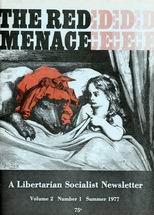
The second issue of The Red Menace was published in the summer of 1977. I wrote a couple of articles for this issue. One of them is titled What is ‘Libertarian Socialism’? It’s one of three articles in this issue which attempt to explore the meaning of “libertarian socialism,” the term that we in the Toronto Liberation School (later renamed Libertarian Socialist Collective) have chosen to characterize our political perspective. My article is really a set of theses outlining my view of the broad principles of a libertarian socialist perspective.
My second article is about the recent conflict at the Bain Avenue Apartments in Toronto, which pitted one group of tenants, affiliated with the Wages for Housework group, against the majority of tenants, who were attempting to take control of their badly run apartment complex and turn it into a self-managed housing co-operative. I had orginally become aware of the conflict at Bain in my role as editor of the local community newspaper, Seven News. I wrote a couple of articles for Seven News describing the conflict and positions taken by the two sides. Both sides liked my Seven News articles: in fact, both sides handed out copies of the Seven News articles in their door-to-door canvassing. However, the more I saw, the more I came to see the Wages for Housework group as manipulative and undemocratic. My article for The Red Menace, Bain Co-op Meets Wages for Housework, described what had happened at Bain and criticized the behaviour of Wages for Housework. (Wages for Housework then wrote a reply which we published in the next issue of The Red Menace.)
This issue of The Red Menace also included an article by Elaine Farragher about working in libraries, titled A Tale of Two Offices. The article reflected our commitment to featuring articles about workplace experiences. Also in this issue were some humourous pieces, including a fake interview with Prime Minister Pierre Trudeau satirizing his indifference to the unemployed, and an In Memoriam page for Mao Tse-Tung [Mao Zedong], the recently deceased Chairman of the Chinese Communist Party. Our ‘tribute’ to Mao recalled his collaboration with the United States while the U.S. was bombing Vietnam, his top-down regimented version of ‘socialism,’ and his contempt for workers’ democracy.
The Red Menace #2 is available as a PDF
Bain Co-op Meets Wages for Housework
The Red Menace - Summer 1977 #
When you first happen upon the Bain Avenue Apartments in Toronto’s Riverdale, a working-class area some two miles east of downtown, you get the sensation that they belong to a different time and place. There is something about them that holds the flavour of an earlier, quieter, more sensible era (even though such an era probably existed only in the clouded reminiscences of our grandparents), something about them that seems to stir the memory or the imagination. Built just before the First World War, the 260 one-, two-, and three-bedroom apartments at Bain are clustered around several tree-lined courtyards, each with its own name, which even the Post Office is compelled to recognize (“The Maples, The Lindens, The Oaks. . .”). There is a sense of scale here which is lacking in most larger developments, and a certain quiet charm which partly compensates for the genteel shabbiness that has overtaken the project over the years.
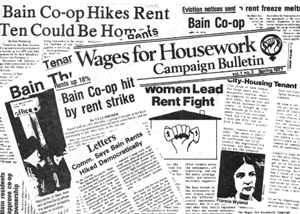
We can surely assume that for the working-class tenants who moved into the newly-completed project in the summer of 1914, this setting must have held forth the promise of a peaceful, prosperous, and stable future.
But it was never quite like that, of course, not then, and not now, and the last few years have been no exception. For several years, Bain has been the scene of constant battles, the latest of which, occurring in the early months of 1977, is the subject of this article. At issue was the future of the complex and its tenants; the struggle, marked by a rent strike, furious door-to-door organizing, stormy general meetings, and a large-scale referendum, pitted residents against each other in acrimonious dispute. This struggle, however, can only be understood against the background of the project.
Read the rest of the story here.
Keywords: Community Organizing – Housing Co-ops – Non-profit Housing.
More on Wages for Housework
The Red Menace - Spring 1978 #
The key to the elitism of Wages for Housework is that they think they have discovered the key to the class struggle, and insist on fitting everything onto their Procrustean bed. There is no dispute at all about the importance and validity of economic demands, whether in the workplace or in the community. What is under dispute is Wages for Housework’s insistence that money is the only thing around which it is permissible to organize, their arrogant belief that working class people cannot be interested in anything except money, and their demonstrated determination to actually sabotage working-class struggles that refuse to stick to the narrow goals Wages for Housework has predetermined for them. In this respect, Wages for Housework appears as a degenerated version of Leninism. Where Lenin proclaimed that the working class could by its own efforts attain only a narrow economic consciousness, and added the corollary that it was the role of bourgeois intellectuals to bring socialist consciousness to it from the outside, Wages for Housework accepts the original proposition but adds a new corollary: the theory that it is the role of middle-class radicals (born-again under the all-encompassing rubric of “housewife”, which conveniently erases all class distinctions) to make sure that the working class does not transcend the supposed economistic limits of its consciousness.
Read the rest of the story here.
Libertarian socialism
The Red Menace - Summer 1977 #
We call ourselves libertarian socialists. But why the adjective? Why libertarian socialism? Is libertarian socialism any different from socialism as it is generally understood?
The problem, and the reason for the adjective, is that there exists no definition of socialism that is “generally understood”. The dilemma of socialism today is first of all the dilemma of the meaning of socialism, because the term has been applied to such an all-encompassing range of persons, parties, philosophies, states, and social systems, often completely antagonistic to each other, that the very term ‘socialism’ has become virtually meaningless.
What is implied by the term ‘libertarian socialism’?
• The idea that socialism is first and foremost about freedom and therefore about overcoming the domination, repression, and alienation that block the free flow of human creativity, thought, and action. We do not equate socialism with planning, state control, or nationalization of industry, although we understand that in a socialist society (not "under" socialism) economic activity will be collectively controlled, managed, planned, and owned. Similarly, we believe that socialism will involve equality, but we do not think that socialism is equality, for it is possible to conceive of a society where everyone is equally oppressed. We think that socialism is incompatible with one-party states, with constraints on freedom of speech, with an elite exercising power ‘on behalf of’ the people, with leader cults, with any of the other devices by which the dying society seeks to portray itself as the new society.
• An approach to socialism that incorporates cultural revolution, women’s and children’s liberation, and the critique and transformation of daily life, as well as the more traditional concerns of socialist politics. A politics that is completely revolutionary because it seeks to transform all of reality. We do not think that capturing the economy and the state lead automatically to the transformation of the rest of social being, nor do we equate liberation with changing our life-styles and our heads. Capitalism is a total system that invades all areas of life: socialism must be the overcoming of capitalist reality in its entirety, or it is nothing.
• Libertarian politics concerns itself with the liberation of the individual because it is collective, and with the collective liberation because it is individualistic.
• Being a socialist is not only an intellectual thing, a matter of having the right ideas or the right intellectual approach. It is also a matter of the way you lead your life.
• A politics that is revolutionary because, in the words of Marx and Engels, "revolution is necessary not only because the ruling class cannot be overthrown any other way, but also because the class overthrowing it can only in a revolution succeed in ridding itself of all the muck of ages and become fitted to found society anew."
• Because revolution is a collective process of self-liberation, because people and societies are transformed through struggle, not by decree, therefore "the emancipation of the working classes can only be achieved by the working classes themselves", not by a Leninist vanguard, a socialist state, or any other agent acting on their behalf.
• A conception of the left not as separate from society, but as part of it. We of the left are people who are subjected to social oppression like everyone else, who struggle for socialism because our own liberation is possible only when all society is liberated. We seek to bring others to our socialist project not to do them a favour, but because we need their help to achieve our own liberation. Cohn-Bendit’s comment that "It is for yourself that you make the revolution" is not an individualistic position, but the key to a truly collective politics, based on the joy and promise of life, instead of on the self-sacrifice that is often the radical’s version of the white man’s burden.
• We of the left see ourselves as equal participants in the struggle, not as the anointed leaders of it. We put forward our socialist vision as part of our contribution, but we do not think that our belief in socialism means that we have all the answers. We deal with people honestly, as equals, not presuming the right to dictate what they shall think or do, nor presuming that we have nothing to learn from them. We have enough faith in our politics that we do not seek to manipulate people to our conclusions.
• As socialists we form organizations with other people who share our ideas. This is necessary and valid, but it represents a situation that we should continually try to overcome, not one that we should accept and even institutionalize in the Leninist mode. Socialism implies not only the withering away of the state, but also the withering away of the left and its organizations as separate entities. Power in a socialist society must be exercised in ways allowing the participation of everyone, not only those belonging to a given organization. This must be prefigured in the political forms and movements that emerge before the revolution. The ultimate goal of the left and its organizations must not be to rule society, but to abolish themselves.
• The most important component of socialist consciousness is critical thought. We must learn to think about everything critically, to take nothing for granted, nothing as given. Consequently, we do not want people to accept socialist ideas in the way they now accept, partially or completely, bourgeois ideas. We want to destroy all uncritical acceptance and belief. We think that a critical examination of society leads to socialist conclusions, but what is important is not simply the conclusions but equally and even more so the method of arriving at them.
• We base ourselves on the heritage of Marxism. This does not mean that we accept all the ideas of Marx, let alone of those who claim to be his followers. Marxism is a point of departure for us, not our pre-determined destination. We accept Marx’s dictum that our criticism must fear nothing, including its own results. Our debt to Marxism will be no less if we find that we have to go beyond it.
• Nothing could be more foreign to us than the "traditional Marxist" idea that all important questions have been answered. On the contrary, we have yet to formulate many of the important questions.
• We have to try to maintain a balance of theory and practice which seeks to integrate them, and which recognizes that we must engage in both at all times.
• The centre of gravity of our politics has to be when we are, not in the vicarious identification with struggles elsewhere. Solidarity work is important, but it cannot be the main focus of a socialist movement.
• We don’t know if we’ll win: history is made by human beings, and where human beings history, we know that it is possible to build a new world, and we strive to realize that possibility.
• "There is only one reason for being a revolutionary – because it is the best way to live."
Ulli Diemer
Originally published in: The Red Menace
Keywords: Alternatives – Freedom – Libertarian Politics – Libertarian Socialism – Libertarianism – Marxism – Marxism Overviews Radical Political Thought – Revolutionary Politics Socialism.
Death on Yonge Street
Seven News - August 13, 1977 - #
This city, which usually seems far too cynical and hurried to care very much about anything any more, has been deeply shocked and violently angered by the murder of the little shoe-shine boy, Emmanuel Jaques, on Yonge Street. The horror of this crime has made people pause in their rat race and made them think about the society around us. It has made people realize that if they do not like the future that is unfolding before them, they will have to take responsibility for it; they will have to act themselves and not leave their city’s future to others. In this, at least, the tragedy has had a positive effect, and this can be Emmanuel’s legacy to us.
But there is also a great danger in this: the danger that some of us will act too hastily, in blind anger, without thinking first about what it is that is really wrong, and what it is that can be done about it.
It is my belief that some of the things that have been said and done during the past few weeks have been seriously misguided, even though they come from reactions and motives that are only too understandable. The result has been hatred and hysteria that threaten to lash out blindly at everything.
Read the rest of the story here.
Keywords:
Homophobia –
Murder in Canada
Make the Don a Museum of Horrors
Seven News - December 17, 1977 - #
Unless something happens soon, the old part of the Don Jail will be torn down early in the new year. That is the fate the man in charge, Tory Correctional Services Minister Frank Drea, has in mind for it, and he has made it clear that he intends to have his way no matter who protests. The Don, Drea & Co. inform us, is a horrible place with horrible memories which no one would want to preserve.
Now, no doubt one should be grateful for the government’s newly-revealed attitude to the old jail, even if the horror it represents took more than a century to dawn on the government that operates it, and even if Mr. Drea, with the self-righteousness of a new convert, is now posturing as the man who all on his own figured out how dreadful the Don is. It’s true, of course, that numerous cabinet ministers – and convicts – have been born and have died since this particular jail was first condemned, but then, as we know, the wheels of justice (and government) do tend to grind a trifle slowly at times.
Read the rest of the story here.
Keywords: Prisons – Prisoners.
Dow complains, Seven News editor Ulli Diemer responds
Seven News - March 11, 1978 - #
Dow Chemical wrote to 7 News complaining that one of its trademarked products had been mentioned in 7 News without acknowledgment of the fact that the product name is a trademark. Ulli Diemer responded on behalf of 7 News, stating that 7 News had no intention of depriving the Dow Chemical Company of the recognition it deserves. One of Dow’s best-known products, the response points out, is napalm, the jellied gasoline extensively used to kill or maim thousands of Vietnamese civilians.
Read the rest of the story here.
Related Topics: Corporate Crime – Crimes Against Humanity – Vietnam War – War Crimes
Opposing Censorship
1978 - #
Recent writing on feminism and pornography promotes an idea that needs to be challenged, a most dangerous idea: the idea that liberation can be promoted by repressive legislation and censorship.
When people on the right advocate repressive measures “for the good of society” one knows how to evaluate their demands. They are the enemies of any kind of liberation, and can be dealt with accordingly. But when people who identify with progressive causes promote repressive legislation as a means of achieving their ends — our ends — there is a danger of a different kind: the danger that the movement will sabotage its own goal by choosing the wrong means to achieve them.
The fundamental fallacy these people are guilty of is the belief that because something is bad, or appears to some people to be bad, it ought to be banned.
Civil libertarians, on the other hand – I include myself – oppose anti-pornography legislation because (1) it would be used for repressive purposes — e.g., against gays — by those whose enforce it and (2) it doesn’t work.
This is not the same as defending the pornography industry and its products. Certainly most pornography is terrible stuff: unimaginative, exploitative of women, etc. However, what is at issue is the question of whether people who support sexual liberation should join the right, the puritans and reactionaries, in supporting the idea that the state should impose a certain view of what should be allowed and what shouldn’t. What is at issue is not that there are “good” movies and “bad” movies, “good” books and “bad” books, but the idea that the state — or any group: church, media, feminists — should have the power to decide what may be read and seen and what may not be read and seen (or more accurately, what may be read and seen legally and what will be read and seen illegally.)
It is a fact that sexuality is an important subject in literature and art. There can also be — and this where those interested in liberation must stand in opposition to the repressive right — good pornography, literature or art whose purpose is to arouse the reader or viewer in a way that promotes healthy sexual feelings and activity. Sexually arousal, after all, tends to be a good thing, so art that is sexually exciting can be a good thing also.
The question is: who is to decide a particular piece of art is good or bad, whether it is exploitative or non-exploitative, whether it should be banned or not? Surely the answer must be that no one should have the power to make such decisions for other people.
To defend obscenity laws at the present time is to give such authority to those whose now have power and influence: the lawmakers, the crown prosecutors, the right-wing media, the police. They would interpret the laws, and they would use them to suppress what they consider obscene.
Yes, the pornography industry and its products are a problem, but they must not be opposed by measures that are worse than the problem. They must not be opposed at the price of giving our enemies more weapons to use against us.
Ulli Diemer
Keywords: Censorship – Erotica – Obscenity – Pornography – Sexually-Explicit Materials.

The Red Menace #3
May 3, 1978 - #
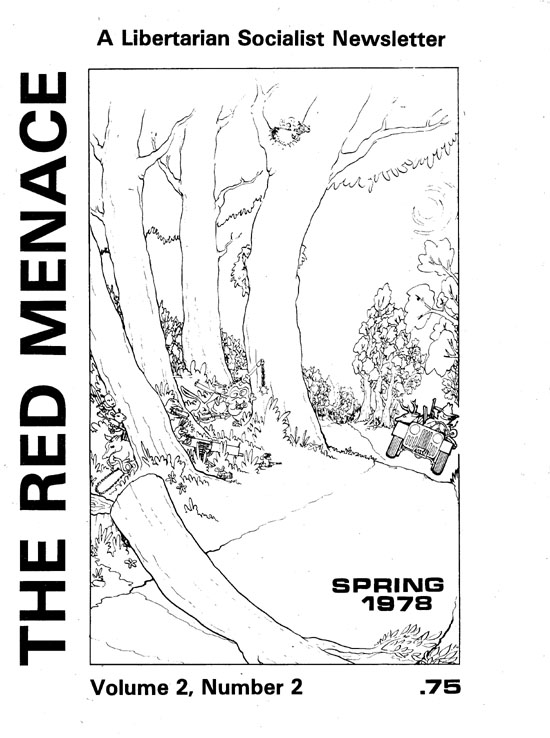
Volume 2, Number 2 of The Red Menace appeared in May 1978. My article Anarchism vs. Marxism appears in this issue, along with a companion article, Bakunin vs. Marx. I argue that anarchist critiques of Marxism typically reveal a lack of knowledge of what Karl Marx actually wrote, resulting in sterile denunciations of a straw-man opponent. There are other articles in this issue on the challeges facing the libertarian left, including "The End of Dialectical Materialism: An anarchist reply to the libertarian Marxists' and 'Some thoughts on organization - What type of organization should anarchists, libertarian socialists and libertarian Marxists be working towards?'
The issue is packed with articles and illustrations about a diversity of issues, including another workplace experience article on working in an office, a story about Radio Alice, a radical radio station in Italy, and even an artcle (included for the sake of encouraging debate), arguing that socialists should work with the New Democratic Party (NDP) to try to move it to the left.
I've also got a couple of shorter bits in this issue, including one on the misue of language on the left.
The Red Menace Volume 2, Number 2 is available as a PDF
Anarchism vs. Marxism
The Red Menace - May 1978 - #
More than one hundred years after the socialist movement split into warring Marxist and anarchist factions, there are signs, at least on a small scale, that people calling themselves anarchists and people calling themselves Marxists or libertarian socialists are finding ways of working together fruitfully. Questions immediately present themselves: To what extent are the old labels still valid? Have their meanings changed in the course of the last century? How solid is the new basis of unity? Have the old divisions been transcended?
But is it necessary to re-examine the old labels and divisions at all? Would it not be best to let sleeping polemics lie and simply concentrate on working together?
The problem is that a socialist movement – or libertarian movement: what terms can we validly use? – that hopes to develop has to confront historical, strategic, and theoretical questions. A socialist movement worthy of the name has to do more than get together for simple actions. It has to ask itself where it is trying to go, and how it proposes to get there
Read the rest of the essay here.
Keywords: Anarchism – Anarchism/Critiques – Libertarian Politics – Lbertarian Socialism – Libertarianism – Karl Marx – Marxism – Radical Political Theory – Revolution – Revolutionary Politics.
Bakunin vs. Marx
The Red Menace - May 1978 - #
Bakunin’s deliberate misrepresentations of Marx’s views on the state were noted earlier. Bakunin was obsessed with the idea that all Germans held identically authoritarian views, and consistently attributed the views of some of Marx’s bitterest enemies, such as Bismarck and Lasalle, to Marx. Marx’s fury at this tactic is a matter of record. Bakunin, in many of his polemics against Marx, argues from the premise that Marx must obviously be authoritarian because he is a German and a Jew, who are by definition authoritarians and statists.
Read the rest of the essay here.
Keywords: Anarchism – Libertarian Politics – Marx, Karl – Marxism – Radical Political Thought.
Words, words, words...
The Red Menace - May 1978 - #
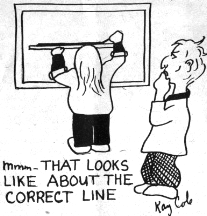
One of the most striking things about the left – or most of it, at any rate – is its habitual abuse of language. While this vice is by no means confined only to the left, it seems to take on some of its worst forms among socialists. The fuzzy, jargon-ridden language of leftist writing is perhaps the most immediately noticeable thing about the left to the ordinary person, and it is one of the main reasons that most of what the left has to say is not even listened to. The problem is by no means a new one – Orwell wrote about it more than a generation ago, in essays like “Politics and the English Language” (which should be required reading for every socialist), in various reviews, and in 1984.
As Orwell, and a very few other political writers such as Paul Goodman have pointed out, abuse of language is not simply an incidental failing. Language is the form through which thoughts are (or are not) developed and communicated. The misuse of language implies the failure to think clearly, to analyse correctly, to communicate with others.
Read the rest of the article here.
Keywords: Language – Rhetoric.
Obscenity Exposed
The Red Menace - May 1978 - #

This January, a St. Catharines man who operates a chain of sex stores was found guilty of “possessing, displaying, and selling obscene sex aids.” Police presented more than 200 pieces of evidence in court, including dildos, vibrators, crotchless panties, and candies, candles, and key chains shaped like genitalia. The trial once again raised the whole question of what is “obscene” and what effect suppression has in creating the need and desire for that which it is supposed to suppress.
But the most interesting thing about the trial was the evidence of the police officers who made the arrest. Each was asked by the defence lawyer why he considered the objects seized to be obscene. And each one in turn replied that these were not the kind of things sold by Eaton’s or Simpson’s.
This, it must be admitted, is a criteria for judging what is obscene and what is not that is as profound as it is simple. It neatly and effectively slices through the impenetrable legal and moral tangle that has surrounded obscenity cases for so many years, and gives us a foolproof standard.
Read the rest of the story here.
Keywords: Censorship, Erotica, Obscenity, Pornography. Sexually-Explicit Materials.
How Things Don’t Work (Book review)
Seven News - August 26, 1978 - #
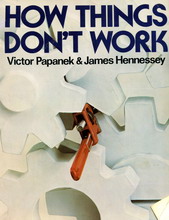
One of the magic phrases in our society is "standard of living". We never stop hearing that we have "one of the highest standards of living in the world." (How convinced the million-odd unemployed or the several million below the poverty line in this country are, I don’t know.)
But now a couple of professional designers have taken a whole new look at this "standard of living", in a book called How Things Don’t Work. In it, they examine some of the possessions which are supposed to add up to our high standard of living.
Their message is that a lot of appliances, tools, and devices don’t satisfactorily do the job they are supposed to do. In short, they don't really work.
Read the rest of this review here.
More than one way to strike
Seven News - August 26, 1978 - #
In any strike in a public service, the public tends to get very irritable, not because of the demands being made, but because of the inconvenience. It’s unfortunate, but a reality of life, that people tend to blame workers rather than management for a strike, even though it may very well be management unreasonableness that is causing the strike.
The point, however, is that transit workers should take this predictable reaction into account, since public support or lack of it can be key in whether their strike is successful.
Read the article here.
Keywords: Public Transit – Strikes – Strikes/Canadian – Tactics
A few decide where we live
Seven News - September 9, 1978 - #
We have to abolish a system whereby a tiny handful with a lot of money can decide how thousands of other people are going to live, how thin their walls are going to be, how much sunshine they’ll be able to get, where their children will play, how much crime and vandalism they’ll be subjected to. Because all those things are determined by how housing and the city generally is planned. And as of now, that is determined mainly by the developers that own the land, and by the politicians who always see things the way the developers do.
But that isn’t the way things should be. How we live is everybody’s business, so everyone should have a say in it. A real say, a direct say...
Read the article here.
Keywords: Housing – Real Estate Development
Democracy loses out
Seven News - November 4, 1978 - #
The people can say what they want, they can vote how they want, but the bureaucrats make the decisions.
Read the article here.
The Red Menace Volume 3, Number 1
Winter 1979 - #
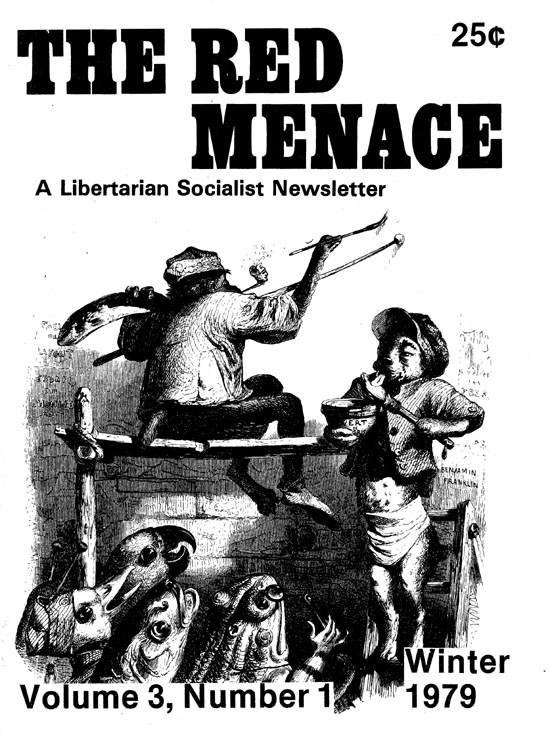
Volume 3, Number 1 of The Red Menace was published in early 1979. The issue featured a Political Statement of the Libertarian Socialist Collective. Liberation Socialist Collective was the new name we had adopted for the Toronto Liberation School. The statement was intended to be a draft version of a statement setting out our views, to be revised after further discussion and after input from readers of The Red Menace. In the event, we never managed to produce a revised version before The Red Menace stopped publishing in 1980.
The issue also contained close to twenty other articles, as well as a number of letters responding to previous issues.
Among the articles in this issue was another in our series about workplace experiences, this one about Working in a Supermarket. an article on censorship and repression in West Germany, a piece on science fiction, another questioning the justification for hierarchies of salaries and income, and a critique of “neo-primitives,” one of the incarnations of anarchism that was fashionable at the time. We also reprinted an 1871 interview with Karl Marx, focusing on the goals and organizations methods of the First International.
I had several articles in this issue, one about radical newspapers, another one about parapsychology, and another about the left’s use of language.
The Red Menace Volume 3, Number 1 is available as a PDF
Radical Newspapers
Red Menace - February 1979 - #
1. Rather than speak of a radical or socialist newspaper, it would be more precise to speak of a radicalizing newspaper.
2. “Radicalizing” refers to two dialectically related processes: radicalization of the community (or workplace, etc.) which the paper serves, and the radicalization of the newspaper itself. Neither of them can be radical, because radicalism is not a state of being (a state of Grace) but a state of becoming.
3. Since the newspaper is a medium of communication, a radical newspaper must embody a radical approach to communication. This means challenging the conception of a newspaper itself, challenging it in two different aspects: the content of what is communicated, and the way in which the communicating is done.
Read the rest of the article here.
Keywords: Alternative Media – Newspapers.
Some of my best comrades are friends
Red Menace - February 1979 - #
The left’s sloppy use of language indicates sloppy thinking.
Read the article here.
Legal decisions threaten press freedom
Seven News - March 23, 1979 - #
In Canada the situation is not nearly as rosy as many of us would like to believe, and, more importantly, things are getting steadily worse. Press freedom is under attack, computer systems and police files are undermining our privacy, books are being banned, trials are being held is secret, police powers are being greatly expanded, governments are competing with each other in passing repressive legislation.
This trend is deeply disturbing, but even more disturbing is the lack of outcry with which it has been met. In a society where most of us have so little freedom to do what we wish with our lives, one would suppose that people would be looking for ways to extend the sphere of rights and freedom, rather than standing passively by while it is being constantly reduced.
Read the article here.
Related Topics:
Censorship –
Freedom of Expression –
Freedom of the Press –
Libel law –
Not guilty means not guilty
Seven News - January 11, 1980 - #
The gay news magazine, The Body Politic, is organizing a public campaign to make Attorney General Roy McMurtry withdraw an appeal against the magazine’s acquittal on obscenity charges last year.
Last February, Ontario provincial court judge Sydney M. Harris acquitted The Body Politic of a charge that an issue of the publication was “indecent, immoral, scurrilous” The Crown is appealing the acquittal, under a quirk of Canadian law that allows the Crown to appeal acquittals. The effect of the law is to create a form of double jeopardy: if a person or organization is acquitted on a charge the first time, the Crown can go right back and try again to get a conviction on the identical charge in another court.
Read the article here.
Keywords: Gay & Lesbian History – Justice System – Obscenity
The Canada Metals story: A chronology
Seven News - February 29, 1980 - #
A chronology of the long struggle to prevent Canada Metals from emitting lead pollution into the surrounding community.
Read the article here.
Keywords:
Contaminated Sites –
Environment & Health –
Lead Pollution
The Red Menace Number 5
Summer 1980 - #
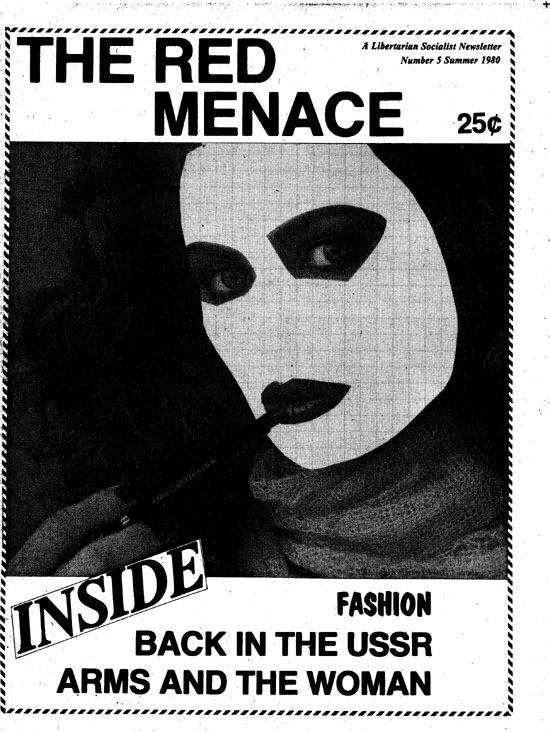
The fifth issue of The Red Menace appeared in the summer of 1980.
Included in this issue were two reports from the Soviet Union and Eastern Europe, one a first-hand report, the other a more theoretical look which also looked at political humour in Eastern Europe. An example:
Q. What is it when you have too much food in the country and no food in the city?
A. A Bukharinite right deviation.
Q. What is it when you have all the food in the city and none in the country?
A. A Trotskyite left deviation.
Q. What is it when you don’t have any food anywhere?
A. The correct application of the party line.
Also in this issue: an article on the role of women in a revolutionary movement, articles on terrorism, fashion, and prostitution, and different viewpoints on anarchism and Marxism, including one by me responding to Sam Dolgoff’s article in the previous issue.
This issue of The Red Menace was the last to be published.
The Red Menace Volume 5 is available as a PDF
Something has to give
Seven News - November 21, 1980 - #
Emotional issues are potent
One of the things that the recent civic election made clear is that left-leaning and reform candidates can be very vulnerable if right-wing groups are able to seize on emotional questions and make them issues during the an election campaign.
Certainly an anti-gay backlash had a lot to do with John Sewell’s defeat in the 1980 mayoral election in Toronto, and with the defeat of a number of aldermanic and school trustee candidates. The police issue, another very emotional one for a lot of people, also contributed to Sewell’s loss.
It seems that traditional campaigning is not sufficient to counteract the kind of gut-level agitation that was done by the right around these issues.
Read the article here.
Keywords: Belief Systems – Emotions – Framing Issues – Homophobia – Politics/Rhetoric/Reality – The Right – Toronto/City Politics
Next: Notebook 2